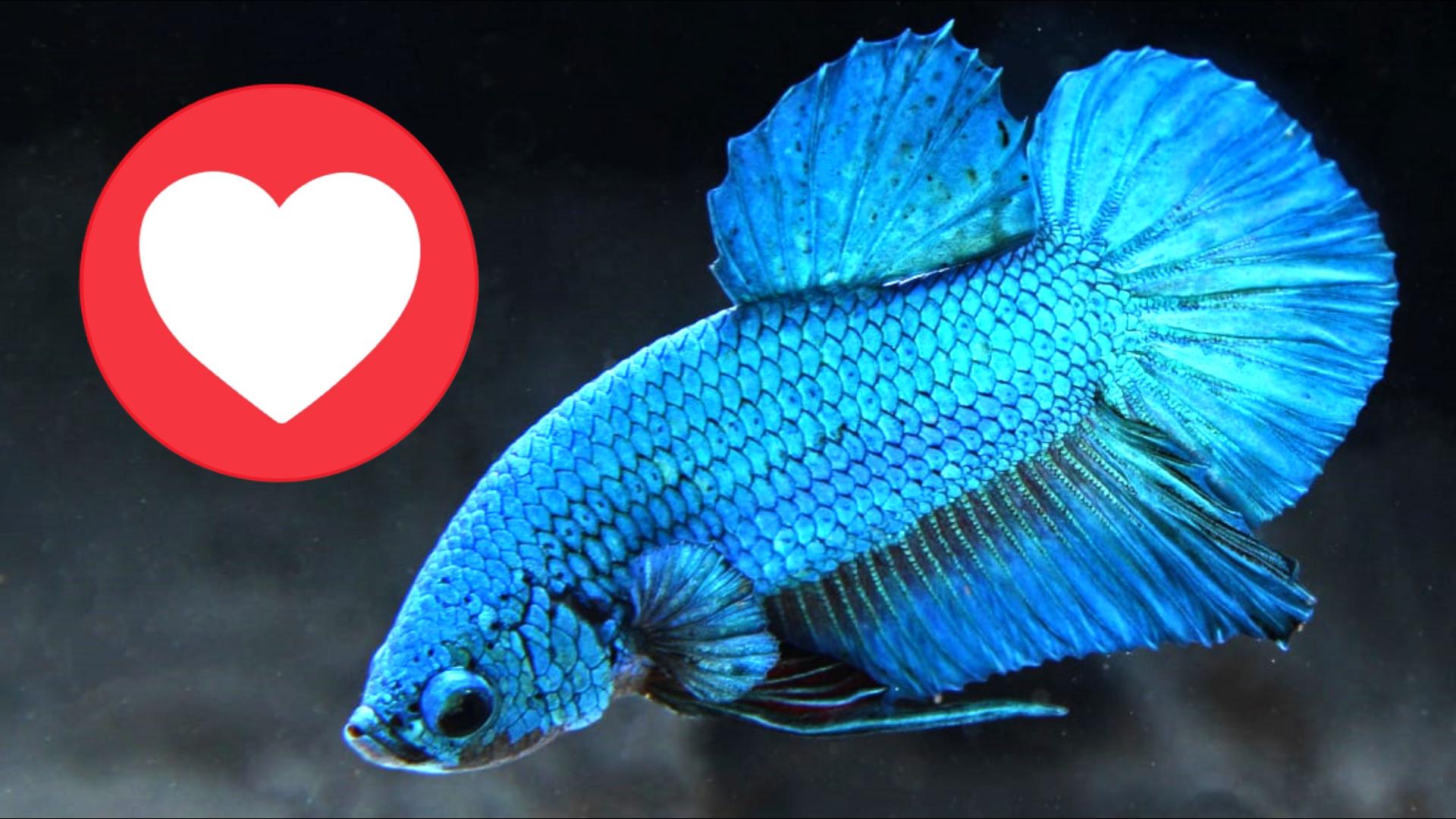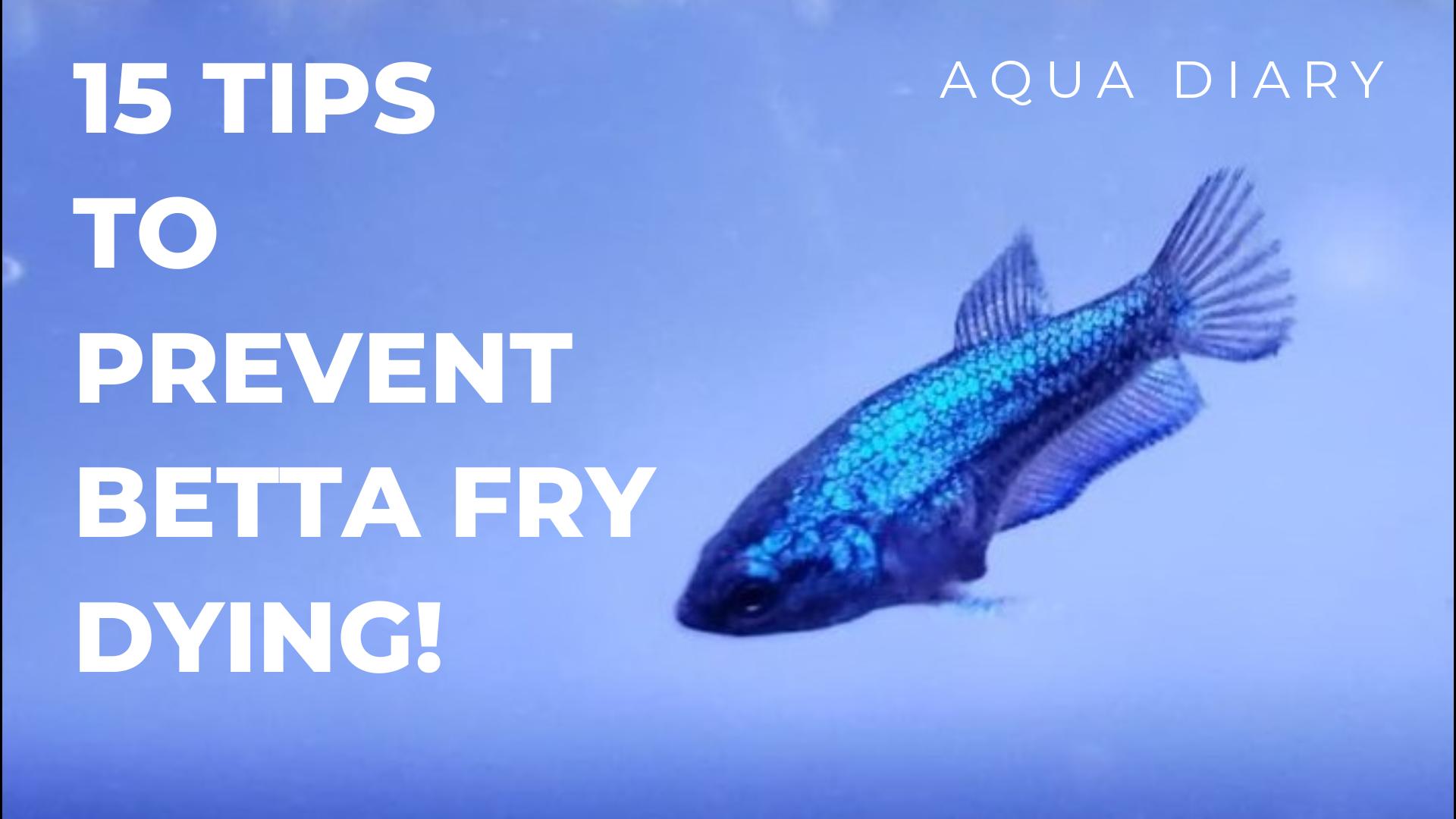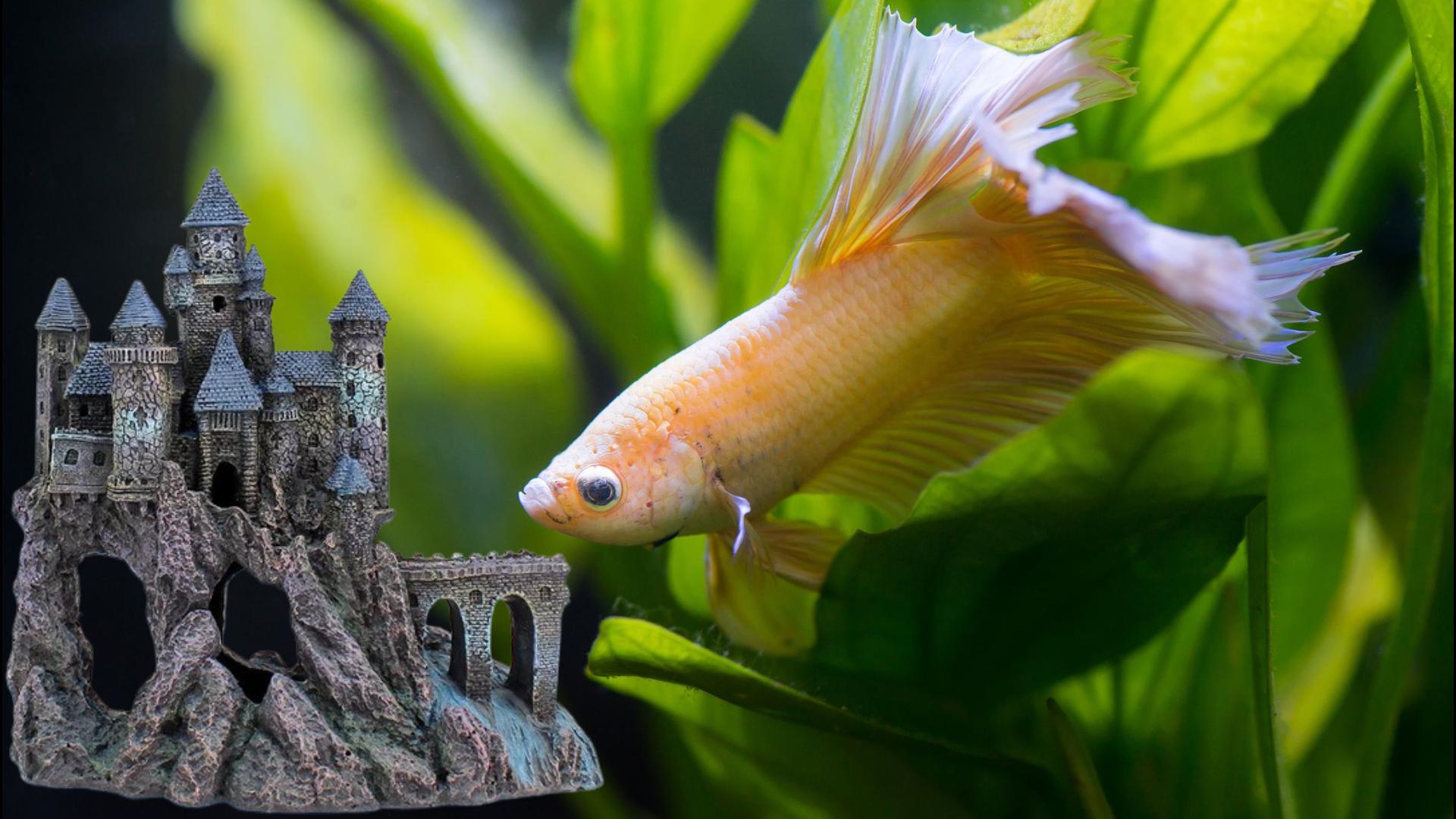Stop Killing Your Betta Fish! Betta fish are stunning creatures with their vibrant colors and unique personalities, but unfortunately, many betta fish suffer from inadequate care, leading to unnecessary deaths.
In this blog, we’ll explore the common reasons why betta fish die. We’ll also provide you with essential tips to ensure your betta stays happy and healthy.
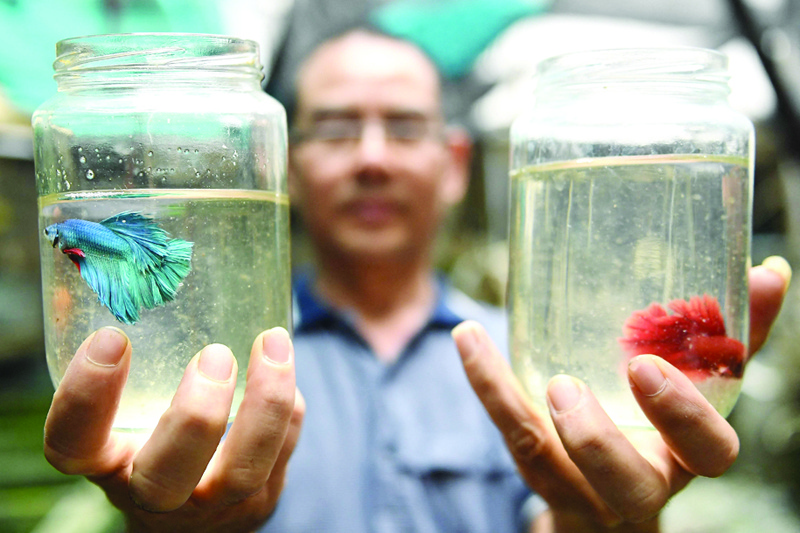
Tran Ngoc Thang poses with Betta fish or Siamese fighting fish raised inside glass jars at his ornamental fish farm in Hanoi on April 13, 2021. (Photo by Nhac NGUYEN / AFP)
One of the primary culprits behind betta fish deaths is poor water quality. Ammonia, nitrites, and nitrates can build up and harm your fish. This leads to stress, diseases, and even death. Unlike other fish, betta have a labyrinth organ that allows them to breathe air from the water’s surface.
This adaptation enables them to survive in oxygen-poor environments, but it also means they can breathe harmful substances like ammonia and nitrites which eventually impact their health and lead to death. Regular water changes are the key to good water quality.
Performing partial water changes (about 20-30%) once a week will help remove accumulated toxins and provide essential minerals for your betta’s well-being.
A good-quality aquarium filter is essential to keeping the water clean and clear. The filter removes waste and toxins, promoting a healthy environment for your betta fish.
Keeping your betta in a small, inadequate tank is another major issue. They need space to swim and explore their surroundings.
Betta fish are highly active fish with a natural instinct to explore their surroundings. In small tanks, they have limited space to swim and exercise, which can lead to stress and boredom.
Without adequate swimming space, betta may become lethargic and lose their vibrant colors. In small tanks, water quality can become poor rapidly.
Accumulated waste and uneaten food can raise ammonia and nitrite levels, which harm betta fish. Also makes them more susceptible to diseases and infections.
Betta fish are territorial fish, and in small tanks, they might feel constantly stressed due to a lack of personal space. Stress can lead to aggressive behavior, resulting in fin-nipping and injuries, especially in community setups.
Provide your betta with a tank of at least 5 gallons or more. It is better for them to have more space, as they will be happier! While 5 gallons is the minimum, bigger tanks are even better! A larger tank provides more stable water conditions, which are easier to maintain.
Betta fish in larger tanks have more freedom to display their natural behaviors and lead healthier lives.
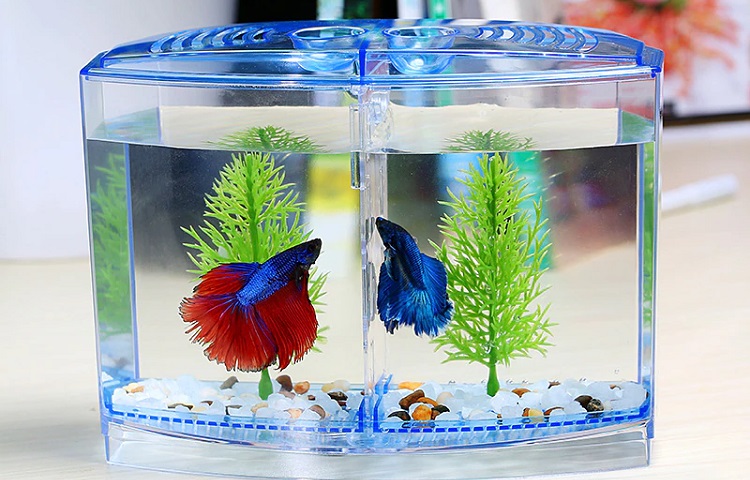
One of the most common feeding mistakes is overfeeding. As responsible caretakers, we may be tempted to keep feeding our betta fish with food to show them love, but this can lead to serious consequences. Overfeeding causes excess food to accumulate in the tank, leading to poor water quality.
Uneaten food decomposes, releasing harmful toxins like ammonia and nitrites. These toxins stress fish, weaken their immune system, and make them susceptible to diseases.
One of the most common feeding mistakes is the consumption of poor-quality foods that lack essential nutrients. Betta fish need a balanced and varied diet to stay healthy and vibrant.
It can lead to weakened immune systems, loss of color vibrancy, and poor fin condition when food lacks essential nutrients. A poorly fed betta will not fight off diseases effectively and may become lethargic and inactive.
To prevent overfeeding, feed your betta small portions once or twice a day. Remember, their stomachs are only about the size of their eyes.
Feed them the amount of food they can be consumed in 2 minutes. Offer your betta a balanced diet of high-quality pellets specifically formulated for betta fish. These pellets should contain essential nutrients and vitamins to support their overall health.
Additionally, you can supplement their diet with live or frozen foods like brine shrimp or bloodworms occasionally. The variety will keep them excited about mealtimes and ensure they receive all the necessary nutrients.
Low temperatures can harm betta fish’s health and well-being. Being cold-blooded creatures, betta fish rely on their environment to regulate their body temperature. When temperatures fall below their ideal range, several issues can arise. In cold water, betta fish become inactive, and their metabolic rate decreases.
They become less active and lethargic, spending more time at the bottom of the tank. Low temperatures can weaken the betta’s immune system, making them more vulnerable to diseases and infections. They may become more susceptible to common betta health issues like fin rot and ich.
Cold temperatures can also slow down betta digestion. Undigested food may accumulate in their digestive tract, leading to bloating and constipation.
The ideal water temperature range for betta fish is between 76°F and 82°F. This temperature range simulates their natural habitat and supports their well-being. In colder environments or during the winter months, an aquarium heater is essential.
The heater will maintain a stable and consistent temperature within the desired range. Use a reliable aquarium thermistor to monitor the water temperature regularly. Ensure it remains within the ideal range to prevent sudden fluctuations that stress the betta fish.
How to Care Old Betta Fish?
In case you have older betta fish, its also critical to understand to give best care possible. The art of caring for old betta fish requires a clear understanding of what to expect. The purpose of this post is to give you a list of things you should do in order to take good care of your old betta fish. How to Care for an Old Betta Fish?
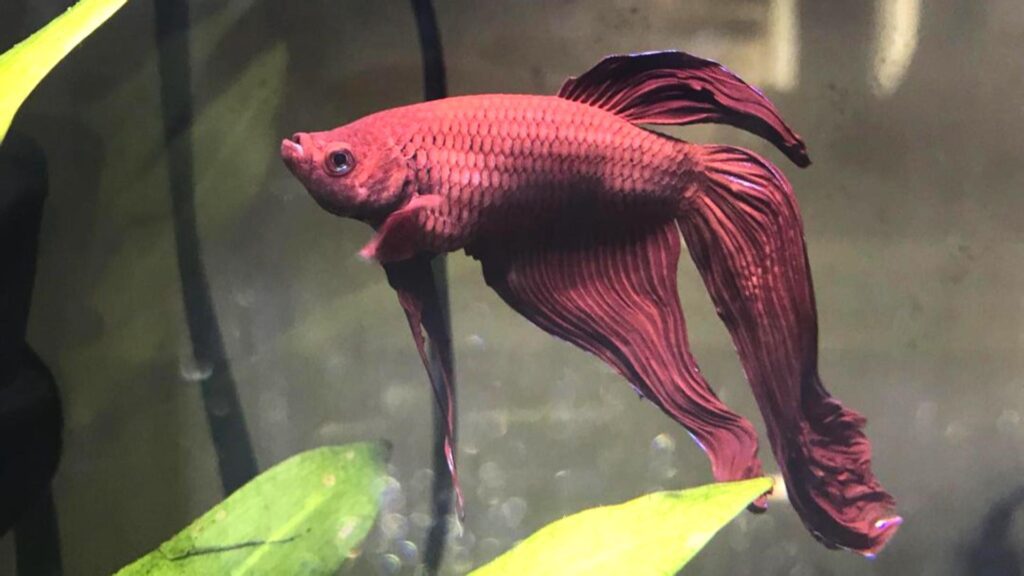
Lowering the water level:
You should check the water level first for older Betta fish. You should keep the aquarium’s water level at 4 inches to 5 inches, which will prolong your old betta fish. This will help your betta fish take less effort to swim to the top of the tank to breathe. With time, the respiratory performance of betta fish will decrease with the water level.
Increase the temperature slightly
Betta fish tend to lose their relative body temperature with age. This is because betta fish reduce blood flow throughout the body. Therefore, you can slightly increase the tank’s temperature to increase the Betta fish’s body temperature. In this case, you should keep the temperature at 81-82 Fahrenheit. This temperature is ideal for your older Betta fish. This reduces the chances of illness and keeps the Betta fish warm while napping.

Provide plenty of plants
The performance of betta fish decreases with age. So you should provide plenty of restful sleep for the Betta fish. In fact, older Betta fish tend to take naps more often. Therefore, you should place silk or natural plants in your tanks to ease this problem.
This will allow the Betta fish to stay close to the surface, especially when replacing tall trees in the tanks. As a result, whenever betta fish need to breathe faster, they can move closer to the surface.
Consider medication:
As Betta fish tend to lose performance with age, they can become ill at any time. And if old Betta fish get sick once, their chances of survival are very slim. We often think about salt baths in this situation, but the most effective approach is to use the medicine.
However, before considering medicine for your Betta fish, you must be sure about the type of illness. In many cases, the use of drugs increases the risk of death for betta fish. The reason behind this is that whenever you take a drug, it kills not only harmful bacteria but beneficial bacteria as well.
More resting spots
It is a good idea to add more resting areas to the tank, both at the mid-level and upper levels. As betta ages, it becomes more difficult for them to move around. That being said, they still need to be able to easily access the surface of the water to breathe air.
By adding more resting areas closer to the surface of the water, you’re making life much easier for your betta. This helps reduce stress and prevents them from straining themselves by moving too often and too much. In addition, be extra cautious about sharp objects in the tank, as they may have less maneuverability.
Old Betta may naturally develop cloudy eyes, mostly due to age. If this begins to impact their sight, you will need to take precautions to protect them.
If they have tankmates, watch them closely to ensure that the other fish are not picking on them. In addition, ensure that they are able to get enough food. If they are, they will be able to live out the rest of their lives happily.
Also there’s a lot of misinformation out there about betta fish care that can be harmful to your fish. In this section, I’ll discuss the top 8 mistakes that can harm your betta fish, and give you steps to avoid them. I’ll also share some personal Betta care mistakes I’ve made and how I’ve improved my methods. Let’s get started!
1. Adding Betta Fish Before the Tank is Ready
I’ve seen this issue a lot, especially among beginners. Many people buy their fish and then reach out to me saying, “My betta is sitting at the bottom, breathing heavily, and not moving.” Sometimes, they even report back within a few days that their fish has died.
Often, it might look like the fish is sick or has a problem, but the real issue is that the fish wasn’t acclimated properly.
One major cause is purchasing the fish and tank on the same day. When that happens, chances are, the tank hasn’t gone through a full cycle. Ideally, you should set up the tank ahead of time to allow beneficial bacteria to grow.
It’s absolutely required to run fish-less cycling to make your life easier. The first step is to set up your fish tank with all the necessary things like a filter, heater, gravel, and things that matter, and let it run for a few days before adding fish. It produces beneficial bacteria in your tank, which stabilize your tank’s water quality by converting fish waste and uneaten food into nitrates, which are less harmful than ammonia and nitrites.
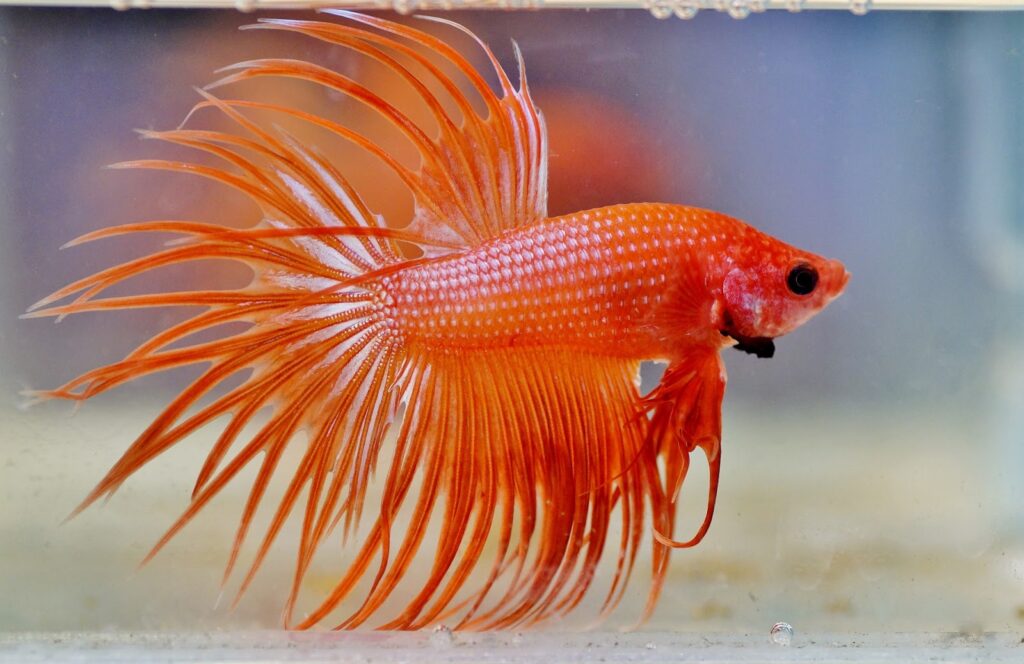
If you want to speed up this process, you can use filter media, plants, or decorations from an established tank that already has beneficial bacteria. Alternatively, using a bacterial starter can introduce those bacteria directly. If you’re interested in the products I use, I’ve pinned them in the first comment.
Also, Betta fish are cold-blooded, so their body temperature changes with the water. If you move your betta into a new tank or conditions too quickly, it can go into shock.
To avoid this, float the Betta in its bag or cup in the new tank for 10-15 minutes to let it adjust. Gradually mix some tank water into the bag before fully releasing the fish. It is the safest way to release the fish into a new tank this way.
2. Bad Tank Decorations
Many of my customers have reported back with issues like fin rot or damaged tails shortly after getting their fish. In most cases, the culprit is sharp or rough tank decorations. Betta fish have delicate fins and scales, and while they’re adjusting to a new tank, they may bump into decorations, leading to injury or stress.
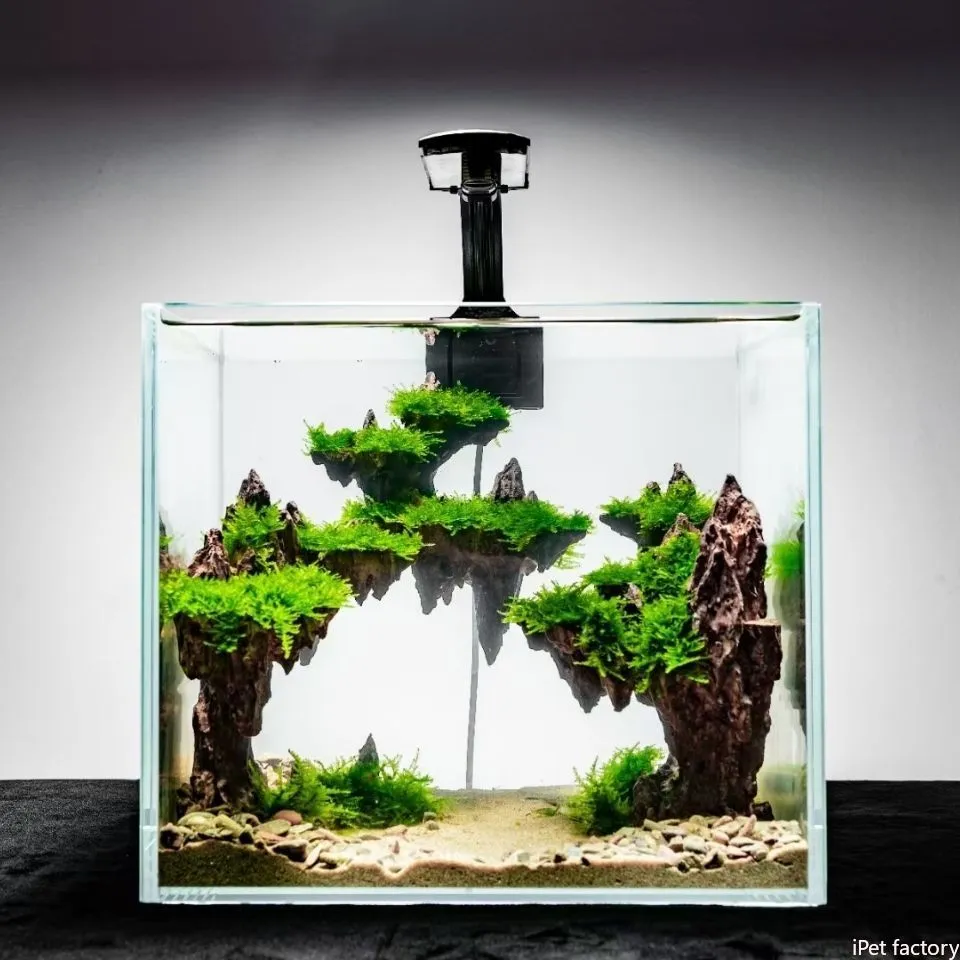
Some artificial plants and decorations have rough edges that can damage your Betta’s fins. If you prefer artificial decorations, opt for silk plants instead of hard plastic ones, as they’re gentler. Also, pay attention to rocks and other ornaments—smooth, rounded stones are ideal to avoid sharp edges that could hurt your fish. I learned this the hard way after losing a few of my favorite bettas due to fin injuries. Now, I only use silk plants and smooth decorations in my tanks.
It’s often tempting to put any interesting decoration piece you find on your home. Believe me, it never worked in my experience. Always inspect decorations before placing them in your tank, checking for rough edges, peeling paint, or chemicals that could harm your Betta.
3. Using the wrong filter for a betta tank
Betta fish thrive in calm water, so it’s essential to use a low-flow filter. High-flow filters can create strong currents that make it hard for Bettas to swim, causing stress and leading to illnesses like swim bladder disease.
The filters will low flow will reduce stress and make your betta fish swim comfortably with their big fins. Sponge filters are an excellent, inexpensive alternative, providing filtration without disturbing the water too much.
4. Picking the wrong tankmates
Betta fish, especially males, are known for their aggression. They should never be housed with other males, as they will fight each other. Additionally, putting male Bettas with colorful or territorial species like Gouramis, Cichlids, or Guppies can cause stress and aggression.
There’s also a misconception that male Bettas can live with females in a large tank. While it’s possible, it often leads to stress, fighting, and sometimes even a death.
I’ve tried this setup myself, and despite my experience, it failed within six months. Always research potential tankmates before adding them. If you want to know the best tankmates for Betta fish, I’ve linked here
5. Maintaining the water chemistry
Water chemistry is critical for Betta health. Many fish keepers overlook, which lead to illnesses or even death. On our channel, I talked a lot about ammonia, nitrate, and nitrite levels so many times, regularly monitoring and maintaining these levels is essential for a healthy tank.
The most convenient way to test your water is with test strips, but I recommend using API’s Master Test Kit for more accurate results. I’ve linked the product in the first comment.
Another mistake I often see is people using the wrong equipment. For example, buying a siphon for a small tank and trying to clean a much larger tank with it. Having the right-sized equipment can make tank maintenance easier.
I bought a siphon made for a five-gallon tank and tried to clean my 20 gallon tank. I honestly thought vacuums weren’t worth it back then, since it took so much time and waste didn’t get sucked up well. Once i tried with the right size of vacuum, i was amazed at how easy it was to clean my tank.
6. Keeping the water level correct
Forgetting to leave a layer of air above the water column that’s easily accessible by your betta fish. Bettas have labyrinth organs, so a common behavior that you see is them going up to the top to take a gulp of air. So, it’s important that you maintain a layer of air above the water column.
I usually keep my tank water level at least 1 inch below the tank top. This will help betta fish gulp air, and reduce the risk of jumping out of the tank.
You don’t have to worry too much about floating plants. However, if you have an infestation of duckweed, it might make sense to have a floating feeding ring for ease of access to the top. The product i use is pinned in the first comment.
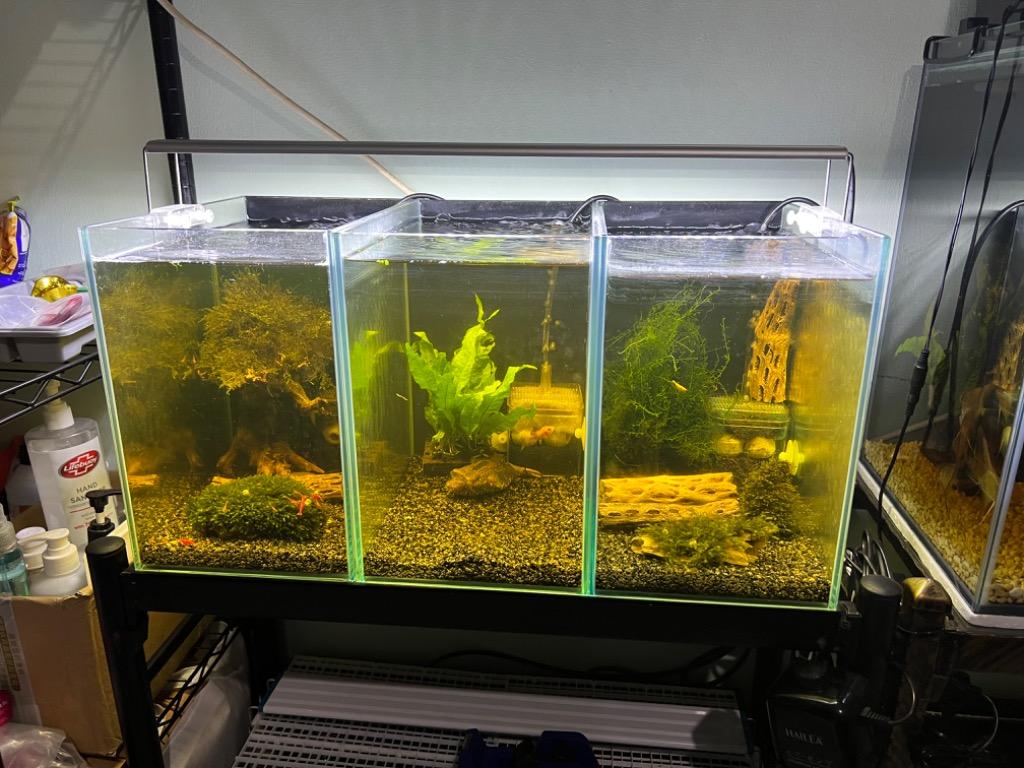
Another mistake I often see is during partial water changes. It’s important to add the correct amount of water conditioner or aquarium salt based on the amount of water you’re replacing—not the full tank volume. Many betta keepers mistakenly dose the entire tank, which can be harmful, or even deadly, for your fish. Always measure and treat only freshly added water.
7. Buying bad tanks
Don’t fall for the marketing gimmick of “beta-specific tanks” that are far too small. The reality is that many tanks marketed specific for betta fish are too small. Pet stores often mistreat your fish and use products that are absolutely harmful.
I recommend you go for a tank that’s at least five gallons. Betta-specific tanks are usually less than two gallons, sometimes even smaller. It is difficult to maintain the water quality in smaller tanks because there is insufficient swimming space, less space for your fish to swim, and less water space to swim. Plus, you need to change the water more frequently.
8. Maintaining the Right Tank Temperature
Bettas are tropical fish that need warm water to stay healthy, ideally between 76°F and 82°F. Unfortunately, many pet stores don’t emphasize the need for a heater.
If the temperature drops below 72°F, your Betta’s immune system weakens, making them more susceptible to diseases. Always use a heater to keep the temperature stable, and I also recommend using a thermometer to monitor temperature fluctuations.

